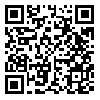Volume 10, Issue 19 (8-2020)
JRSM 2020, 10(19): 137-147 |
Back to browse issues page
Download citation:
BibTeX | RIS | EndNote | Medlars | ProCite | Reference Manager | RefWorks
Send citation to:



BibTeX | RIS | EndNote | Medlars | ProCite | Reference Manager | RefWorks
Send citation to:
Alipour H, bagherli Z, Bahari S M. The Effect of Enhanced Expectancies on Performance and learning Golf Putting with an Emphasis on Self-efficacy and Perception Competence. JRSM 2020; 10 (19) :137-147
URL: http://jrsm.khu.ac.ir/article-1-2549-en.html
URL: http://jrsm.khu.ac.ir/article-1-2549-en.html
1- Islamic Azad University, Karaj Branch
2- Islamic Azad University, Karaj Branch ,bagherli2000@yahoo.com
2- Islamic Azad University, Karaj Branch ,
Abstract: (6787 Views)
Sport psychology and its role is important effect on successful in physical education. One of following a field of sport psychology that affects performance, is self-efficacy. The aim of this study was to investigate the effect of raising expected impact on performance and learning with an emphasis on self-efficacy and competence Put Golf is perceived. In terms of content this study was applicable. The experimental design was pretest-posttest with two large and small target groups. For this purpose, a sample of 34 students were divided into two groups (n=17), participated in this study. Students perform 5 blocks efforts in the pre-test, then the acquisition phase which contains 5 blocks of 10 trials and then the retention and transfer was performed in 12 attempts. After checking the normality of the data, independent t- test and analysis of variance (repeated measure ANOVA) was used. The findings of this study showed that learning putting golf balls between large and small target groups significantly different (p<0.05), But there isn’t significant difference between the two groups in efficacy and perceived competence. The results showed that enhanced expectancies significant impact on learning motor skills of golf putting golf in the retention and transfer test, while enhanced expectancies had no significant effect on self-efficacy and perceived competence.
Type of Study: Applicable |
Subject:
motor behavior
Received: 2017/10/10 | Accepted: 2018/09/30 | Published: 2020/08/31
Received: 2017/10/10 | Accepted: 2018/09/30 | Published: 2020/08/31
References
1. Badami R, VaezMousavi M, Wulf G, Namazizadeh M. Feedback about more accurate versus less accurate trials: Differential effects on self-confidence and activation. Research Quarterly for Exercise and Sport. 2012;83(2):196-203. [DOI:10.1080/02701367.2012.10599850]
2. Chiviacowsky S, Wulf G. Self-controlled feedback: Does it enhance learning because performers get feedback when they need it? Research quarterly for exercise and sport. 2002;73(4):408-15. [DOI:10.1080/02701367.2002.10609040]
3. Chiviacowsky S, Wulf G, Wally R, Borges T. Knowledge of results after good trials enhances learning in older adults. Research Quarterly for Exercise and Sport. 2009;80(3):663-8. [DOI:10.1080/02701367.2009.10599606]
4. Saemi E, Porter JM, Ghotbi-Varzaneh A, Zarghami M, Maleki F. Knowledge of results after relatively good trials enhances self-efficacy and motor learning. Psychology of Sport and Exercise. 2012;13(4):378-82. [DOI:10.1016/j.psychsport.2011.12.008]
5. Palmer K, Chiviacowsky S, Wulf G. Enhanced expectancies facilitate golf putting. Psychology of Sport and Exercise. 2016;22:229-32. [DOI:10.1016/j.psychsport.2015.08.009]
6. Chauvel G, Wulf G, Maquestiaux F. Visual illusions can facilitate sport skill learning. Psychonomic bulletin & review. 2015;22(3):717-21. [DOI:10.3758/s13423-014-0744-9]
7. Lewthwaite R, Wulf G. 10 Motor learning through a motivational lens. Skill acquisition in sport: research, theory and practice. 2012:173.
8. Wulf G, Lewthwaite R. The optimal theory of motor learning. Manuscript submitted for publication. 2015.
9. Wulf G, Lewthwaite R, Bruya B. Effortless motor learning? An external focus of attention enhances movement effectiveness and efficiency. Effortless attention: A new perspective in attention and action. 2010:75-101. [DOI:10.7551/mitpress/9780262013840.003.0004]
10. Wulf G, Chiviacowsky S, Lewthwaite R. Altering mindset can enhance motor learning in older adults. Psychology and Aging. 2012;27(1):14. [DOI:10.1037/a0025718]
11. Clark SE, Ste-Marie DM. The impact of self-as-a-model interventions on children's self-regulation of learning and swimming performance. Journal of sports sciences. 2007;25(5):577-86. [DOI:10.1080/02640410600947090]
12. Stoate I, Wulf G, Lewthwaite R. Enhanced expectancies improve movement efficiency in runners. Journal of Sports Sciences. 2012;30(8):815-23. [DOI:10.1080/02640414.2012.671533]
13. Witt JK, Linkenauger SA, Proffitt DR. Get me out of this slump! Visual illusions improve sports performance. Psychological Science. 2012;23(4):397-9. [DOI:10.1177/0956797611428810]
14. Chiviacowsky S, Wulf G, Lewthwaite R. Self-controlled learning: the importance of protecting perceptions of competence. Frontiers in psychology. 2012;3:458. [DOI:10.3389/fpsyg.2012.00458]
15. Pascua LA, Wulf G, Lewthwaite R. Additive benefits of external focus and enhanced performance expectancy for motor learning. Journal of Sports Sciences. 2015;33(1):58-66. [DOI:10.1080/02640414.2014.922693]
16. Wulf G, Chiviacowsky S, Cardozo PL. Additive benefits of autonomy support and enhanced expectancies for motor learning. Human movement science. 2014;37:12-20. [DOI:10.1016/j.humov.2014.06.004]
17. Ávila LT, Chiviacowsky S, Wulf G, Lewthwaite R. Positive social-comparative feedback enhances motor learning in children. Psychology of Sport and Exercise. 2012;13(6):849-53. [DOI:10.1016/j.psychsport.2012.07.001]
18. Schmit RAL, R. . Motor learning and control. . Hemayattalab, R; Ghasemi, A. 2005; Tehran (Science and motor publication):(Persian).
Send email to the article author
| Rights and permissions | |
 | This work is licensed under a Creative Commons Attribution-NonCommercial 4.0 International License. |








